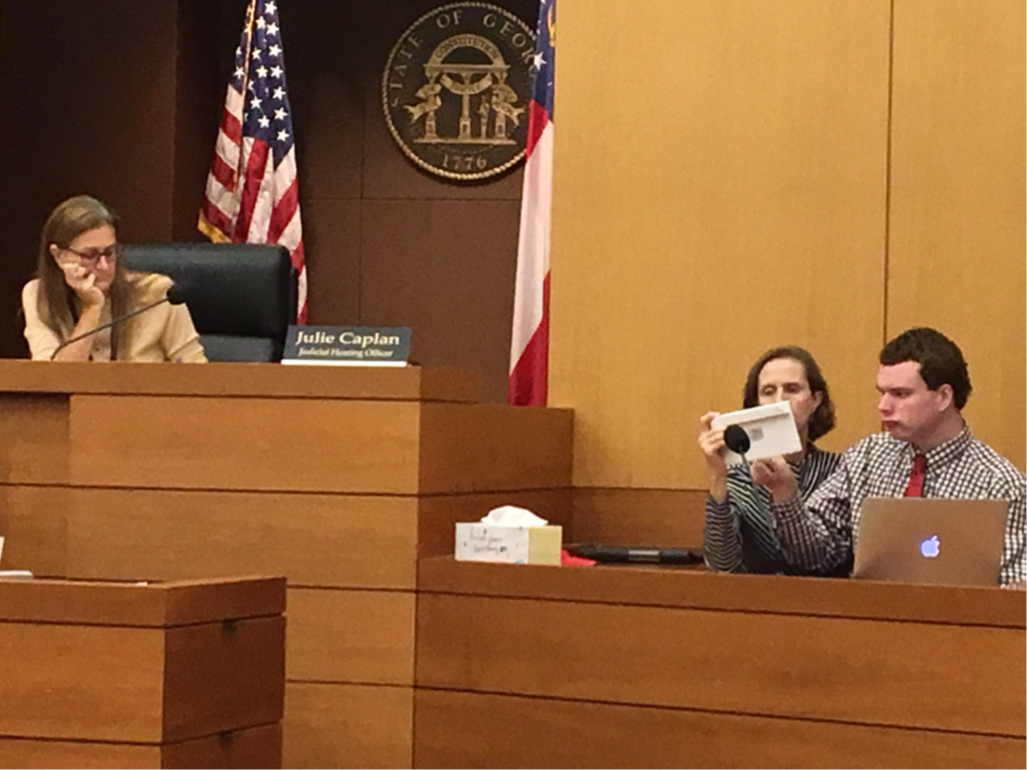Guardianship: A Barrier to Independence and How We Can Remove It
Guardianship isn't always the answer. Supported Decision Making is an alternative to guardianship. Some people with disabilities might need limited guardianship or conservatorship. But many people with disabilities don't need it. There are often better ways to get support.
My son was put under guardianship. This affected our whole family. Looking back, we didn't need guardianship at all. Here is our story.
John is one of my five children who is autistic and does not use his voice to communicate. Because of his disability, his inability to talk or communicate broadly, and his significant daily support needs, we were unsure of the future. As John grew up, one of our fears was that some medical emergency would occur and that we would not be able to make decisions for him. His pediatrician told us that we needed to get guardianship of John before he turned 18. There is a lot of pressure on parents of children with disabilities to take away their rights through guardianship. Before John turned 18, we consulted with an attorney who told us (incorrectly, as we later discovered) that because John could not reliably communicate with a wide audience, we should be his guardians. I’m embarrassed to admit that we became John’s guardians based on this person’s recommendation.
 Several years after the guardianship began, John learned to communicate by pointing to letters on a laminated board. This changed John’s life, and it changed his ability to specifically state his desires. John was clear on not wanting to be under guardianship. Although he made many of his own decisions, he felt less than a whole person because he lacked rights that most other people enjoy.
Several years after the guardianship began, John learned to communicate by pointing to letters on a laminated board. This changed John’s life, and it changed his ability to specifically state his desires. John was clear on not wanting to be under guardianship. Although he made many of his own decisions, he felt less than a whole person because he lacked rights that most other people enjoy.
When John was 24 years old, he terminated his guardianship. For John, the process was not that difficult since he had gained the use of written communication. For many others, it is very difficult to get out from under guardianship.
In John’s letter to the probate judge, he stated his reasons for wanting to terminate his guardianship: “I am really no different than any other 24-year-old man. My hopes and dreams are that I can live independently in a place that I choose with whomever I choose. The same is true of what type of work I do. It's my choice to be a public speaker. I already make my own medical decisions thanks to the view that my parents have of me as an adult. I want employers and doctors to recognize that I have the right to decide what work I do and what medications I take. I want them to work with me accordingly.”
People with disabilities can and should have the opportunity to make their own decisions. Supported Decision Making was John’s pathway to terminating his guardianship. Supported Decision Making is a way for people with disabilities to get control over their lives. The concept is simple. All people, all ages, all races, all socioeconomic levels get support when they are making decisions. Think about an important decision you made recently. What was it about and who did you talk to when you needed more information or just wanted to bounce alternatives around? The idea of Supported Decision Making for people with disabilities is to formalize that process that we all use.
A person with a disability may need to have more or different support depending upon the situation. The most important aspect is that the person with a disability decides what areas they need help with and what kind of help they need. Decisions are not made for them, they are made by them. By making the guardianship discussion one of the first we have about people with disabilities transitioning to adulthood, we do them a great disservice and strip them of their personhood.
Before guardianship is considered, Supported Decision Making should be introduced and the person with a disability should be given chances to create a support network that will help them to make decisions. You can learn more from “I Decide Georgia” at https://idecidega.org/.